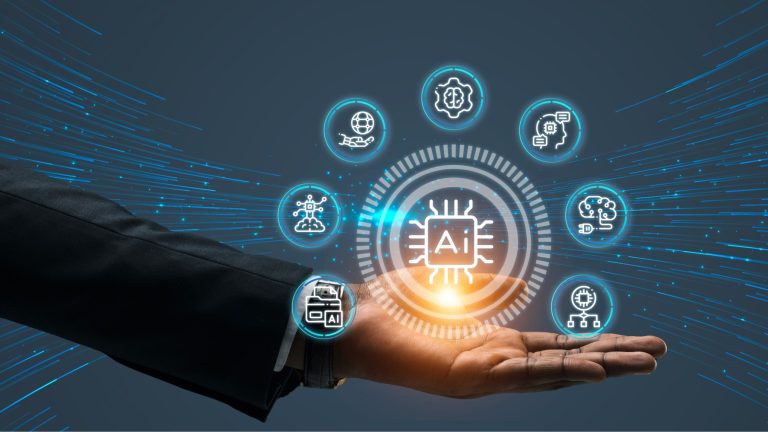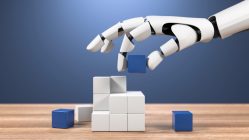(IANS): When IBM CEO Arvind Krishna predicted a few months ago that he could easily see 30 per cent of jobs getting replaced by AI and automation over a five-year period, his statement raised several eyebrows. As the year comes to an end, the prediction has become somewhat real, and AI has started to eliminate entry-level jobs.
Another report by global investment bank Goldman Sachs also created a storm, which predicted that AI could replace the equivalent of 300 million full-time jobs and Generative AI (GenAI), able to create content indistinguishable from human work, is “a major advancement.”
More than one-third (37 per cent) of business leaders say AI has already replaced workers this year, according to a recent report from ResumeBuilder. According to Asana’s ‘State of AI at Work 2023’ report, employees say that 29 per cent of their work tasks are replaceable by AI.
According to experts, level 1 (customer service) and level 2 (coding, data analytics etc) jobs are at an imminent risk from GenAI, which is only becoming smarter and more advanced with new sets of Large Language Models (LLMs).
GenAI tools can help office administrators and assistants with tasks such as basic email correspondence, identifying data trends, finding mutually-available meeting times across time zones and other summary/synthesis exercises, say experts.
AI-powered chatbots can provide speedy, personalised responses to customer questions, reducing the need for human workers. AI is also making an impact on finance and banking. Morgan Stanley uses AI-powered chatbots to organise its database.
According to a recent study by the International Labour Organisation (ILO), GenAI is more likely to augment than destroy jobs by automating some tasks rather than taking over a role entirely.
Also read: 93% healthcare workers feel their workplace as physically safe
However, certain clerical jobs may never emerge in lower-income countries.
Clerical work was found to be the category with the greatest technological exposure, with nearly a quarter of tasks considered highly exposed and more than half of tasks having medium-level exposure.
In other occupational groups – including managers, professionals and technicians – only a small share of tasks was found to be highly exposed, while about a quarter had medium exposure levels, the study by the UN body found.
“The potential effects of Generative AI are likely to differ significantly for men and women,” the study said, with more than twice the share of female employment potentially affected by automation. This is due to women’s over-representation in clerical work, especially in high and middle-income countries.
“Since clerical jobs have traditionally been an important source of female employment as countries develop economically, one result of Generative AI could be that certain clerical jobs may never emerge in lower-income countries,” the ILO study emphasised.
Global technology company Zoho’s CEO and co-founder Sridhar Vembu has said that AI poses a serious threat to several programming jobs.
AI will leave about 90 per cent of people without jobs in the next 10 years, Kunal Shah, Founder and CEO of fintech unicorn CRED, was quoted as saying in media reports recently.
Deadly robots that can climb trees, AI that may render all jobs obsolete and a work-less future are a near possibility for humanity, Tesla and SpaceX CEO Elon Musk told UK Prime Minister Rishi Sunak in November.
There will come a time where no job is needed as AI will be the “most disruptive force in history”, he told Sunak in a wide-ranging conversation.
AI will be smarter than the smartest human, said Musk.
“We are seeing the most destructive force in history here. You can have a job if you want one for personal satisfaction but AI will do everything,” he added. “It’s both good and bad — one of the challenges in the future will be how do we find meaning in life,” said the X owner.
AI cost nearly 4,000 people their jobs in May in the US. According to the US-based consulting firm Challenger, Gray & Christmas, employers in the US cited AI as the reason for 3,900 of the layoffs, roughly 4.9 per cent of the job cuts in that month.
According to Arundhati Bhattacharya, CEO and Chairperson for Salesforce India and former SBI chairperson, while temporary job losses may occur due to AI, different types of new jobs will emerge.
“In every single industry and revolution, we have always talked about massive job losses. I don’t believe you would describe it as much different in the sense that there may be temporary job losses. People will need to upskill and reskill but different types of jobs will definitely come up,” Bhattacharya told IANS recently.
“There are people who are saying that they will become ‘AI Ethicist’, and there are people who are saying they will become ‘Prompt Engineers’, so there are various types of new jobs that will come up,” she added.
Stay connected with us on social media platform for instant update click here to join our LinkedIn, Twitter & Facebook































